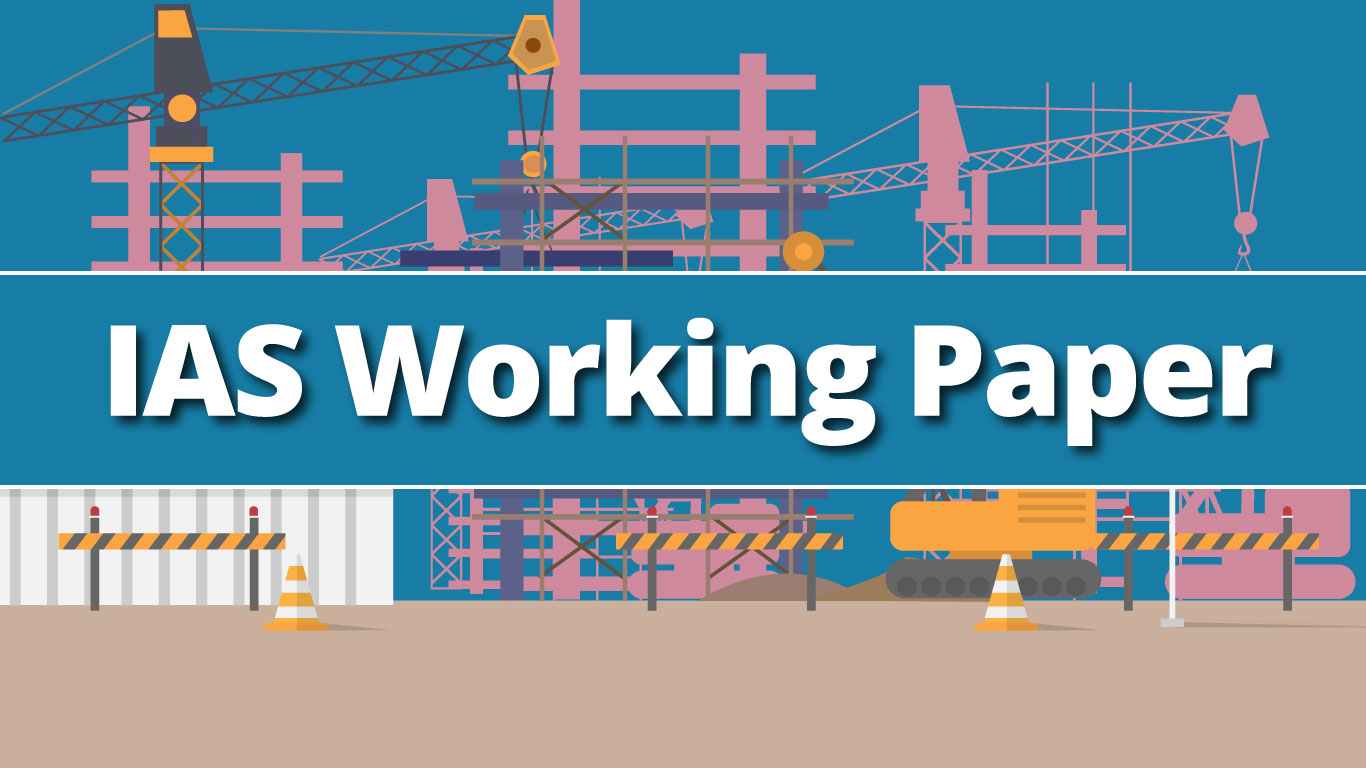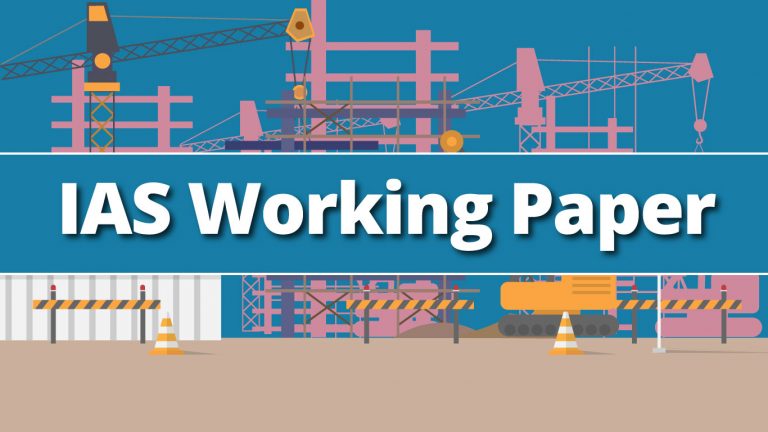The Institute of Asian Studies at Universiti Brunei Darussalam is pleased to announce the publication of IAS Working Paper No 57: Covid-19 and Tourism in Southeast Asia by Jennifer Kim Lian Chan and Victor T. King. Please see below for details.
Abstract: During the past two decades the Southeast Asian region has experienced a range of major crises. Its substantial tourism industry has often taken the brunt of these difficult and testing events, from natural and environmental calamities, epidemics and pandemics, downturns and financial slumps in the world economy, terrorism and political conflict. The latest peril, this time on a global scale, is the ‘Novel Coronavirus’ (Covid-19/SARS-CoV-2) pandemic; it has already had serious consequences for Southeast Asia and its tourism development and will continue to do so. Since the SARS epidemic of 2002-2004 the Southeast Asian economies have become increasingly integrated into those of East Asia (China, Japan, South Korea, Taiwan, Hong Kong). China’s contribution to tourism in the Association of Southeast Asian Nations (ASEAN) has grown exponentially. This paper surveys some of the most significant literature on crises, and specifically Covid-19, to gauge their consequences for tourism in Southeast Asia. By comparing experiences across the region, we highlight the issues raised by the over-dependence of some countries on visitor arrivals from East Asia, the problems generated in certain cases by multiple, sequential or coinciding crises, and some of the responses to these. A common focus of crises research has been on dramatic and usually unpredictable natural disasters and on human-generated global economic downturns but less attention has been given to disease and contagion, which is both natural and socio-cultural in its origins and effects. In the case of Covid-19, it is a situation that evokes a pre-crisis period of normality, a liminal transition and a post-crisis ‘new normality’.
Authors:
Jennifer Kim Lian Chan is Professor of Tourism and Hospitality, Faculty of Business, Economics and Accountancy and Director of the Borneo Tourism Research Centre, Universiti Malaysia Sabah. Formerly she was Deputy Director, Centre for Strategic and Academic Management (2008-2014), and Deputy Dean for Research and Development, School of Business and Economics (2000-2002). She regularly reviews for high impact and Scopus tourism and hospitality journals; editor/board member for The Routledge Handbook of Tourism Experience Management and Marketing (TRHTEMM), editor for IGI Global-book, Global Opportunities and Challenges for Rural and Mountain Tourism, editorial board member for the review panel for Electronic Journal of Business Research Method, International Journal of Qualitative Research in Services; and the Journal of Hospitality Management and Tourism. She is an International Visiting Professorial Fellow and Doctor Fellow of the Royal Institution, Singapore (since 2015); Honorary President of the Royal Institute of Tourism, Singapore; Professorial Chair holder in the field of Tourism and Human Capital Development, Royal Institution Singapore (2017-2018); Board Member of the Asian Ecotourism Network January 2019.
Author: Victor T. King is Professor of Borneo Studies at Universiti Brunei Darussalam and Emeritus Professor in the School of Languages, Cultures, and Societies at the University of Leeds. He was formerly Executive Director of the White Rose East Asia Centre, Universities of Leeds and Sheffield (2006-2012). He has long-standing interests in the sociology and anthropology of Southeast Asia, ranging over such diverse fields as social and cultural change, development, tourism and heritage, ethnicity and identity, multidisciplinary area studies, and museum and photographic studies. Among his recent publications are an edited book, UNESCO in Southeast Asia: World Heritage Sites in Comparative Perspective (2016, NIAS Press, Copenhagen), and co-edited books on The Historical Construction of Southeast Asian Studies (2013, ISEAS Press, Singapore), Rethinking Asian Tourism: Culture, Encounters and Local Response (2014, Cambridge Scholars Publishing, Newcastle), Tourism and Monarchy in Southeast Asia (2016, Cambridge Scholars Publishing, Newcastle), Human Insecurities in Southeast Asia (2016, Springer, Singapore), Borneo Studies in History, Society and Culture (2017, Springer, Singapore), Tourism and Ethnodevelopment: Inclusion, Empowerment and Self-determination (2018, Routledge, London and New York) and a four-volume reader, Tourism in East and Southeast Asia (2018, Routledge, London and New York). His recently published papers have appeared in the journals Sojourn: Journal of Social Issues in Southeast Asia; South East Asia Research, Bijdragen tot de Taal-, Land- en Volkenkunde, Current Issues in Tourism, Journal of Human Security Studies, Suvannabhumi: Multi-disciplinary Journal of Southeast Asian Studies, International Journal of Asia Pacific Studies, International Journal of Humanities and Social Science Research, Asian Journal of Tourism Research, and Pertanika: Journal of the Social Sciences and Humanities. His co-edited book Tourism in South-East Asia (1993, Routledge, London and New York) has been re-issued with a new Preface (2019).
To see more IAS Working Papers, please visit the IAS Working Papers web page.



